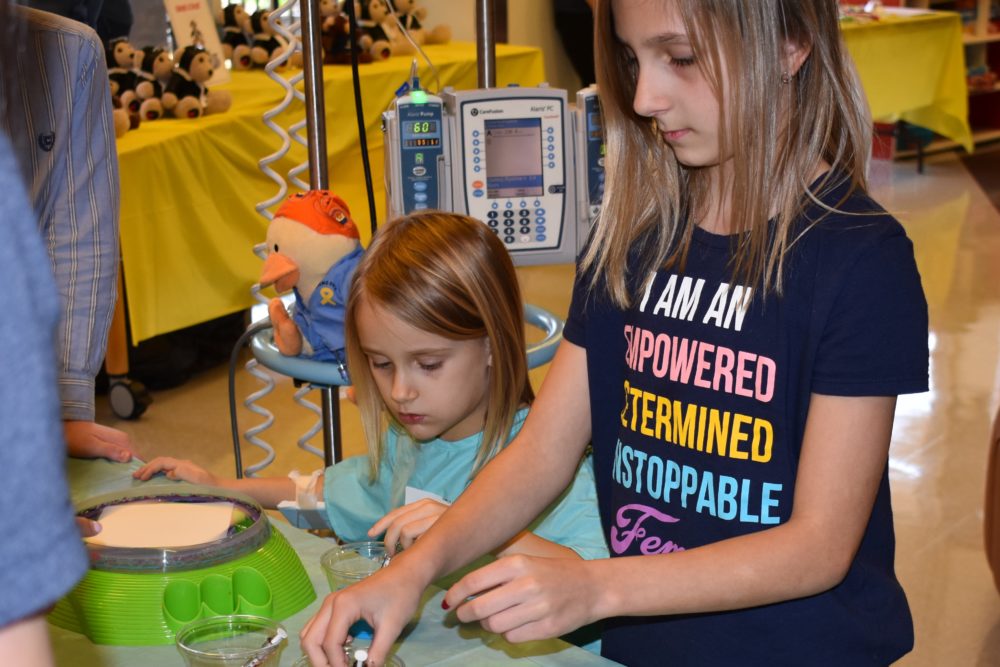Alivia Linnekin, 7, has been battling acute myeloid leukemia since March.
She has had several long stays at Children’s Healthcare of Atlanta at Scottish Rite, where she recently had a bone marrow transplant.
When a child is diagnosed with cancer or another major disease, it can be devastating to the entire family. “It has been very difficult,’’ says Alivia’s mom, Denise Linnekin of Dallas, a northwestern suburb of Atlanta.
Older sister Carly has visited Alivia during the child’s hospitalizations. During one of those stays, Carly, 11, took part in a specially designed program called SibZonely, which focuses on the siblings of hospitalized children.
SibZonely offers relief from the stress of having a hospitalized sibling, and it also provides therapeutic art activities. The two sisters’ mom called it a “really positive experience’’ in the midst of a difficult time.
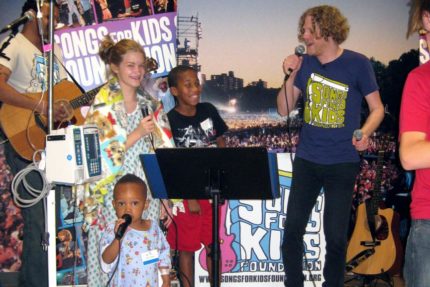
The regular Child Life Zone at Scottish Rite is a play area where patients and families can enjoy some recreation and attend special events. “It’s like a playroom on steroids,’’ says Amanda Roberts, a child life specialist at the Child Life Zone.
The area’s 4,140 square feet include a gaming room, an arts-and-crafts section and a theater room, plus an outdoor portion with a koi pond, a basketball court, a putt-putt hole and green space.
The hospitalized patients’ siblings can regularly join them in the Zone. But SibZonely, offered during summers at the Zone, has a different focus. It addresses the particular needs of the children in a family who are not sick.
“Often, siblings are put on the back burner’’ when a youngster becomes seriously ill, Linnekin says. “The sick kids tend to get more attention. As a parent I felt like I could only do so much to help Carly feel included.’’
Recent research about the effects of childhood illnesses on a family shows the potential for negative psychological effects on healthy siblings.
“Understandably, after a child is diagnosed with cancer, the family’s attention is shifted to the affected child and siblings may experience unintentional neglect,’’ says a Canadian study in the 2018 Journal of Pediatric Psychology. Although most siblings adjust to this change, a significant number have symptoms of anxiety, depression and post-traumatic stress.
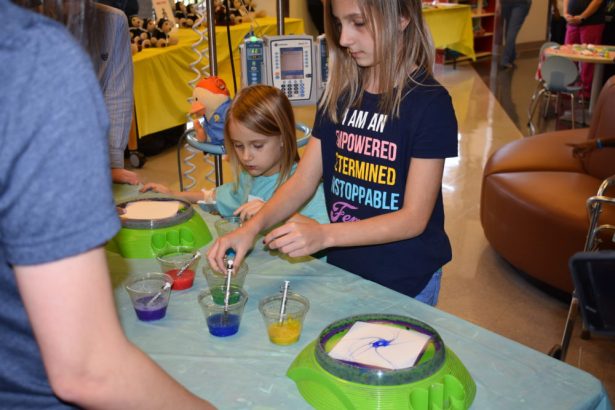
The stress on siblings is highest during the initial stages of a child’s cancer treatment, the study says. It adds that there is a risk of long-term psychological distress for the siblings, including the possibility that they will develop drinking problems in adulthood.
“Siblings’ needs typically go unaddressed,’’ the study says. “Given these findings, providing siblings with appropriate supportive services has recently become a standard of psychosocial care in pediatric cancer.’’
She has been in their shoes
Roberts, who developed the SibZonely program, understands what the patients’ siblings are feeling. She has experienced such feelings herself.
When she was growing up, her sister was frequently hospitalized with a blood disorder. While visiting her sister at the hospital, Roberts met a child life specialist, who took the time to answer all her questions and address her concerns.
Roberts was so moved that she found her vocation — as a child life specialist. “I know it’s important work.’’
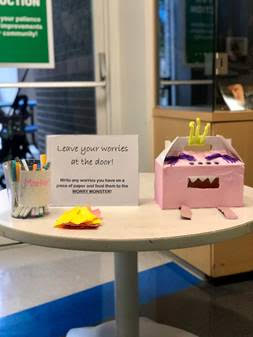
Upon arrival at the SibZonely program, a child writes down a specific worry and leaves it in the “Worry Monster,’’ and writes letters to the ailing brother or sister. The child can also create a scrapbook.
These children also can participate in a sand art activity that lets them match their current emotions to different colors of sand. (Blue represents sadness.)
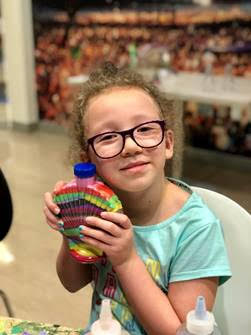
“I let them take over the entire place,’’ Roberts says.
A pediatric psychologist at Children’s Healthcare says there’s growing attention on the health needs of siblings of a sick child.
“We often don’t think enough about how siblings are coping when their sibling has cancer’’ or another major illness, says Beth Thompson, who works at the Aflac Cancer and Blood Disorders Center at Children’s Healthcare.
The range of emotions can include fear, worry, guilt, anger, jealousy and isolation, Thompson says, adding that often “you see acting out or tantrums.’’
A siblings-only program can make them feel less isolated, Thompson says. “They can talk to someone not in their family who is specifically trained in communicating with children.’’
Roberts says the program for siblings “helps them express themselves.’’ She wants to expand it beyond summers to the school year.
Denise Linnekin is happy to see such outreach efforts. “Any kind of inclusion is so important for these kids,’’ she says. “Sometimes we don’t think of them.’’

